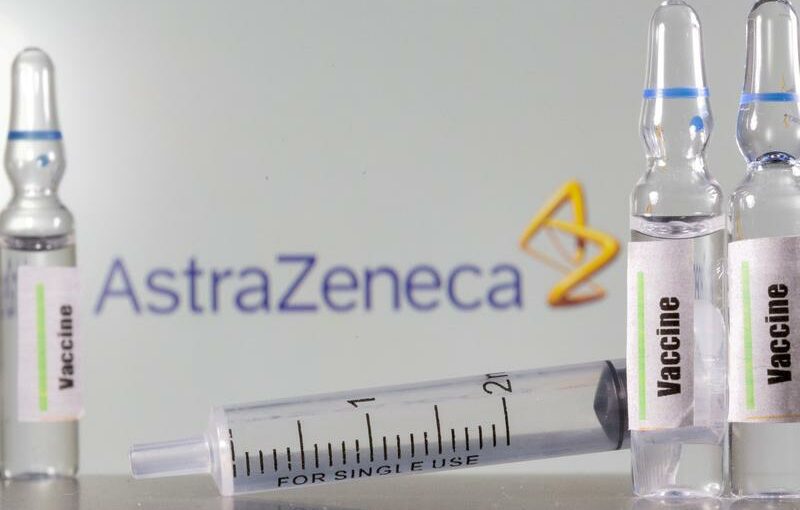DUBLIN (Reuters) – Ireland temporarily suspended AstraZeneca’s COVID-19 vaccine “out of an abundance of caution” on Sunday, citing reports from the Norwegian Medicines Agency regarding a cluster of serious blood clotting in some recipients there.
Three health workers in Norway who had recently received the AstraZeneca COVID-19 vaccine were being treated in hospital for bleeding, blood clots and a low count of blood platelets, its health authorities said on Saturday.
Ireland’s National Immunisation Advisory Committee (NIAC) recommended the temporary deferral pending the receipt of more information from European regulators in the coming days.
Authorities in Denmark, Norway and Iceland have suspended the use of the vaccine over clotting issues, while Austria stopped using a batch of AstraZeneca shots last week while investigating a death from coagulation disorders.
EMA has said there is no indication that the events were caused by the vaccination, a view that was echoed by the World Health Organisation on Friday. AstraZeneca also said it had found no evidence of increased risk of deep-vein thrombosis.
Irish authorities received some reports of clotting similar to those seen in Europe last week but nothing as serious as the cases in Norway, Deputy Chief Medical Officer Ronan Glynn said.
Glynn said the fact that the Norwegian cases related to a cluster of four unusual clotting events involving the brain in 30 to 40 year-olds raised the higher level of concern.
He said that one of the reasons Ireland acted now was that it was due to administer the AstraZeneca vaccine to people of a similar age with serious underlying conditions next week.
“It may be nothing, we may be overreacting and I sincerely hope that in a week’s time that we will have been accused of being overly-cautious,” Glynn told national broadcaster RTE.
“Hopefully we will have data to reassure us in a few short days and we will be back up and running with this.”
AstraZeneca vaccinations make up 20% of the 590,000 shots administered among Ireland’s 4.9 million population, mainly to healthcare workers after its use was not initially recommended for those over 70 and the firm supplied far fewer vaccines to the European Union than agreed.
There have been 4,534 COVID-19-related deaths in Ireland. The number of cases per 100,000 people in the past 14 days fell to 155 from a high of over 1,500 in January, although officials are concerned over a slight rise in new cases in recent days.
Northern Ireland Deputy First Minister Michelle O’Neill also raised concerns over the suspension of AstraZeneca elsewhere. The region’s assistant director of public health, Stephen Bergin, said the vaccine’s rollout will continue.
Like the rest of the United Kingdom, Northern Ireland is much further ahead in its programme and has inoculated more than 40% of the adult population, relying heavily on AstraZeneca’s vaccine.
Source: Read Full Article
